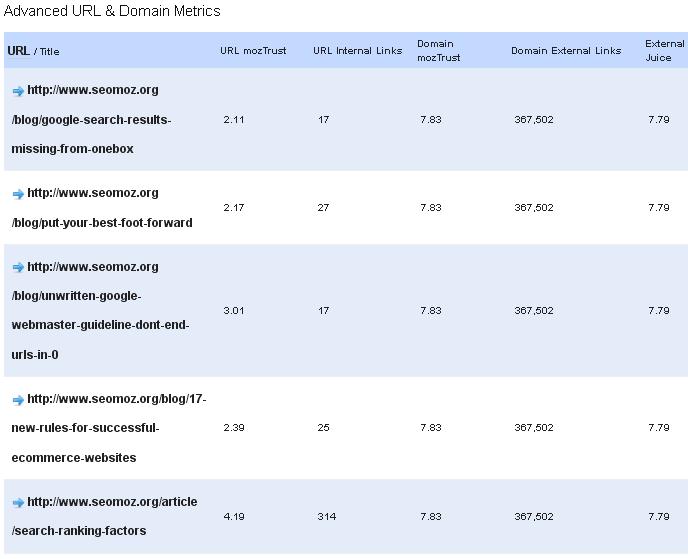All Linkbait Is Not Created Equal: What Linkscape Reveals About Popular Content
If blogging is a site's primary means of acquiring links, virtually anything it produces could be linkbait of some sort. However, the things you called linkbait when you set out to create them aren't necessarily what brought a site the most links. This is similar to the difference between viral marketing and content-based link building and I've been as guilty as anyone of calling something linkbait when it was actually publicity generation and eyeball-attraction. Ain't nothing wrong with content like that, either. In addition, if I worked for a search engine (err.. a search engine that indexed content as well as links), I'd be very interested in the net's collection of viral, linkless information.
StumbleUpon is a good place to go to find content that has passed before a high number of eyeballs but which is often lacking inlinks. Neither individual reviews pages nor popular items lists give away followed links, which I find pretty unacceptable: items receiving over a certain threshold of attention should at least be granted a followed link, especially as that content is what makes StumbleUpon worth using.
I promise you I didn't plan that. The order of the URLs was based on how valuable I considered each piece of content, and the pages' metrics confirm that the Internet agrees. The only metrics that don't follow the pattern are the "URLs ending in .0" post, whose mozTrust is higher than Rand's e-commerce piece, and the fact that Matt Inman's footer post has more external links than the URLs article. Those anomolies are easily explained: the URLs post was linked to by more authoritative sources, mainly because it was only interesting to people like us. The footers post gained links from both some of the sites featured, people who'd worked with the footers' designers and regular design / SEO blogs.
What is the premier type of linkbait you see on the web? Of course, it's the gimmicky stuff. It often performs the best in social media, and thus we're fooled into thinking that it's the best form of link building. It isn't even true that this sort of content is the easiest to come up with! It usually takes true inspiration, a bit of wit and often a few martinis to be sufficiently funny to appeal to social media crowds en masse, but you're often providing them with little more than a cheap thrill. Done often and well enough (Hi, Cracked! RIP Drivl), this tactic develops an enviable following and link profile, but it rarely turns into massive numbers of links if done on a normal scale.
Yes, there are exceptions and we've seen them, but the daily offering atop StumbleUpon's most-popular list won't necessarily turn into the sort of link love that less exotic pages will eventually pull. Thought you knew this already? Most of us always assumed that this was true, but it's nice to watch the evidence pile up. Put your site's or your clients' linkbait through Linkscape (the above reports are free to run) and see which ones resulted in the highest degree of trust, inlinks and mozRank. A combination of high-quality, high-link items and high-attention pieces achieves both the social media and SEO benefits of link-worthy / viral content.
It probably means less time creating "fun" items, but the link benefit of understanding what produces the best linking results are surely worth it. Although I can't promise that we won't drink too much at a conference in the future and write something else that makes a lot of noise on Digg and garners us no links whatsoever ;)
www.seomoz.org
published @ October 9, 2008
